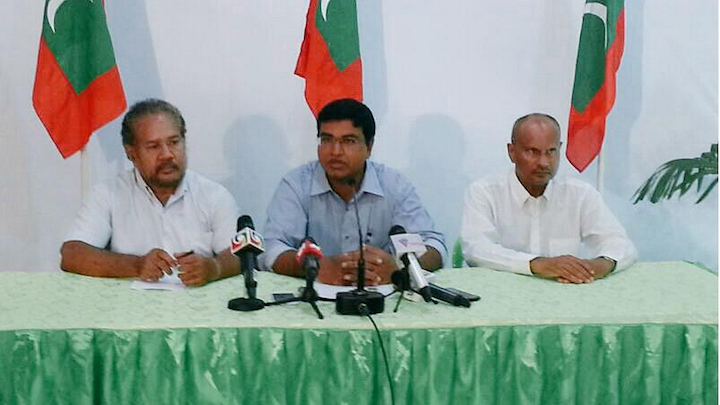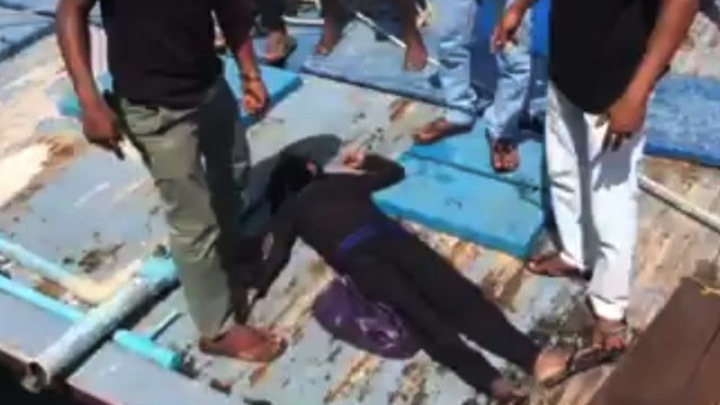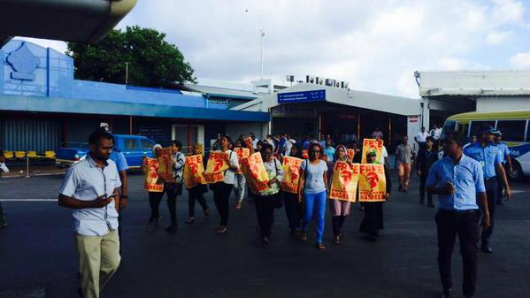Maldivian school text books, sermons and other published materials on Islam breed hatred and Islamic fundamentalism, says rights NGO, Maldivian Democracy Network (MDN).
The report, which is the first of its kind, analyzed text books used in Maldives for primary and secondary education in order to identify the prevalence of radical narratives in the mainstream academic discourse.
The report noted that the school text books cultivate anti-Semitism and xenophobia, and glorify Jihad or war against those who allegedly “obstruct” Islam.
All Maldivian students are required to take Islam as one of the four compulsory subjects, alongside Dhivehi, English and Mathematics from first grade through twelfth grade.
Islamic studies text books are prepared by specialists at the ministry of education and approved by the ministry of Islamic affairs.
The government is struggling to prevent an outflow of Maldivians seeking to join the civil wars in the Middle-East. The police in January said over 50 individuals have left the country, while the opposition puts the number at 200.
In addition to analyzing text books, the human rights NGO held public forums in several islands to ascertain whether the public view human rights and Islam to be compatible, and conducted interviews with Islamic ministry officials and heads of schools.
Glorifying jihad
In the eleventh grade Islamic studies text book, jihad is defined as “to endeavor greatly,” or “to bravely confront enemies,” and the definition is supported with verses from the Qur’an and prophetic verses or Hadith that stress the importance of a ‘Holy War.’
MDN noted that two whole pages of the book were dedicated to “fruits” of Jihad, claiming that the ultimate fruit of Jihad is martyrdom, for which the reward in Islam is an eternity in heaven.
The text book claims that Muslims who hesitate to perform this “obligatory religious duty have produced bitter results in the past and it will continue to do so if left undone.”
“These discussions fuel hatred an depict the religion as one that is set on building hegemony,” read the MDN report.
An autobiography of a Maldivian man, who was killed while waging Jihad at Syria posted by Bilad-al-Sham media group, claimed that many students studying at the main secondary school, Center of Higher Secondary Education, had chosen to engage in Jihad.
“Though it has a secular curriculum, so far from that very school has come out many shining stars in the path of Jihad and students whose hears filled with the love of Islam. Allah Akbar!” read the biography of Abu Dujanah, who reportedly died in battle in Syria in September 2014.
Us vs. Them
MDN noted that Islamic textbooks for grade one, two and three contain material instilling love for Islam and rarely incites hatred through xenophobic narratives.
“However, from grade four onwards the xenophobic material gradually increases to the point where the radical outweighs the moderate,” the report read.
In the grade five textbook, Jews are described as “devious people” who “do not hold any value to their promises”, leading to stereotyping and has made anti-Semitism the norm in the Maldives.
The text books also incite hate against pagan religions and other Abrahamic religions, and depicts all Islamic Sects expect the Sunni sect as “heresies.”
“For Instance, the grade nine text books dictates a lesson on “deceivers” or “liars” from the Muslim world or Ummah,” read the report.
The books describe the Ahmadiyya sect as a “plot by the British to destroy Islamic Unity,” and says Muslims educated in the West, or Muslims who speak for secularism are considered co-conspirators with the West to undermine Islam.
“Due to the prevalence of these radical ideas, the text books fail to primarily instill a positive interpretation of Islam that is manifested in the [2008] Maldivian Constitution,” concluded the report.
Meanwhile, the ninth grade text book appears to dismiss women’s rights and feminism as part of a ‘western agenda.”
The tenth grade textbook says “slaves must work tirelessly to fulfill their masters needs,” and the eleventh grade textbook outlines discriminatory penalties under Islamic penal provisions for victims of a crime if they are a slave or a non-believer.
“Such discriminatory and racialist attitudes in relation to religion should not be endorsed by educational literature in the modern world where slavery has been abolished,” the report read.
MDN recommends the removal of “discriminatory content” from school books in order to create tolerance and good will to all members of the globalized world.
The assessment was conducted with the assistance of Canadian Fund for Local Initiatives from December 2014 to March 2015.




